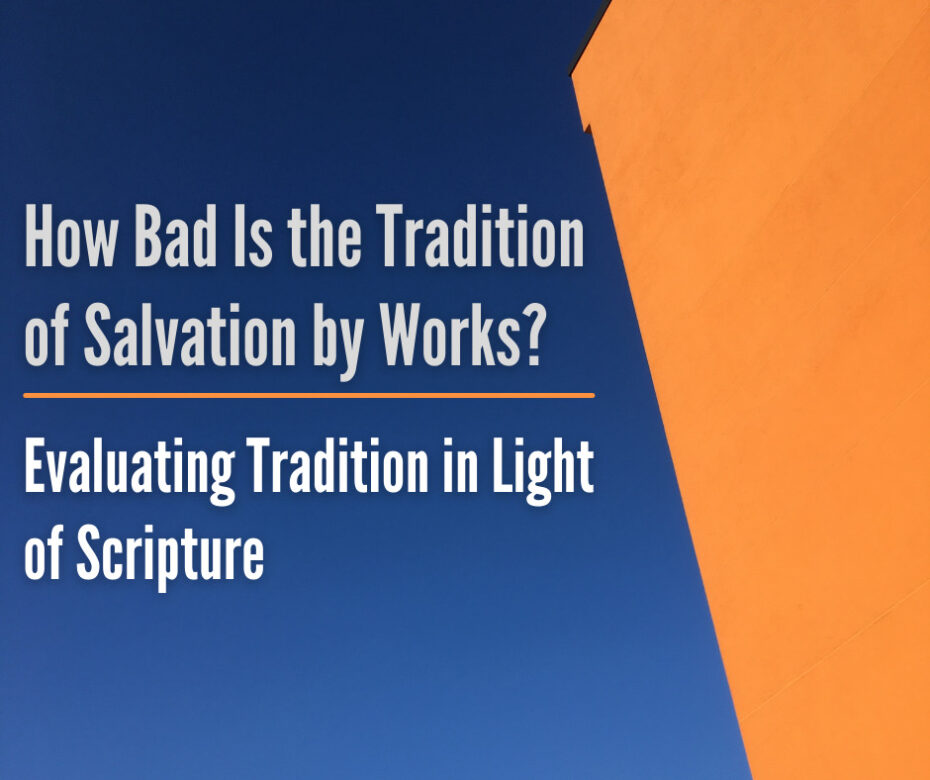Catholic churches teach works salvation. So do Eastern Orthodox churches. So do most Protestant churches.
Matthew Bates is associate professor of theology at Quincy University in Quincy, IL. He has written several books on justification by works. The first was called Salvation by Allegiance Alone (Baker, 2017). The second was titled Gospel Allegiance (Brazos, 2019). In the latter book, he writes:
“We are saved by allegiance to him as we are led by the Spirit (rather than rule systems) into obedience to his commands. For the Spirit allows us to produce good works pleasing to him” (Gospel Allegiance, p. 224).
“Paul repeatedly says good works will determine final salvation on the day of judgment. We cannot ignore these texts…” (p. 183).
“Nearly all Christians agree that works are required for salvation. This includes all major Protestant Denominations as well as Catholics and Orthodox alike” (p. 185).
What he wrote there is indeed the view of most in Christianity today. Both Calvinists and Arminians write and say similar things.
Yet the Lord Jesus and His apostles were clear that salvation is a gift of God received by faith in Christ, apart from works (John 3:16; 5:24, 39-40; 6:28-29; Rom 4:4-5; Eph 2:8-9; Titus 3:5; Rev 22:17). Works salvation directly contradicts the command of God the Father that people believe in His Son for everlasting life (John 5:24).
The Lord Jesus and the Apostle Paul both said that everlasting life and eternal salvation is “the gift of God” (John 4:10; Eph 2:8). The word in John 4:10 translated “gift” is dōrea, and in Eph 2:8, the word “gift” is the closely related Greek word dōron. Both words refer to a free gift. In Eph 2:8-9 and Rom 4:4-5, Paul makes it clear that we do not buy the gift of God. In John 4:10, John 6:28-29, and Rev 22:17, the Lord Jesus makes it clear that we do not buy the gift of God.
BDAG, the leading dictionary for NT Greek, says concerning dōrea, “pertaining to being freely given, as a gift, without payment, gratis.”
The sole condition of the gift of God is faith in Christ.
When I came to faith as a senior in college in 1972, all of us in the Jesus movement shared our faith with anyone who would listen. We were all concerned about Roman Catholics, Eastern Orthodox, and most Protestants too. We believed that works salvation was not a saving message.
Sadly, many theologians and pastors now define faith (pistis) as turning from our sins, submitting our lives to Christ, and promising to serve Him for the rest of our lives. They turn faith into work. Biblically, faith in Christ is being persuaded or convinced that He guarantees that the one who believes in Him will never die spiritually (John 11:26). The issue is not turning from sins or submission or pledging to serve Him.
If a person believes that his faith in Jesus means that he is saved for today, but that he must persevere in faith and good works in order to be saved forever, then he does not believe the shall-not-perish message of John 3:16. The believer has everlasting life right now. As Dr. Ryrie liked to say, “If everlasting life could be lost, then it has the wrong name.”
Bates spoke of a possible future salvation that is dependent on good works. He called that final salvation. That is a very popular expression today. Calvinists like John Piper, Ardel Caneday, and Tom Schreiner use that expression too. Yet salvation is final the very moment that anyone believes in Jesus for everlasting life (John 3:16; 5:24; 6:35; 11:26). Once we are saved, we always will be saved.
If someone says that we must do good works in order to be born again, he is contradicting God’s Word. That is frontloading the gospel to use an expression coined by Dr. Howard Hendricks. But if someone says that we must persevere in good works in order to gain final salvation, then he is backloading the gospel (Prof. Hendricks, again). That is also a rejection of the teachings of the Lord Jesus and His apostles.
Works salvation is a very popular modern tradition that contradicts God’s Word. It is probably the most dangerous unbiblical tradition since it hinders people from being born again by proclaiming a false gospel to them (Gal 1:6-9).


